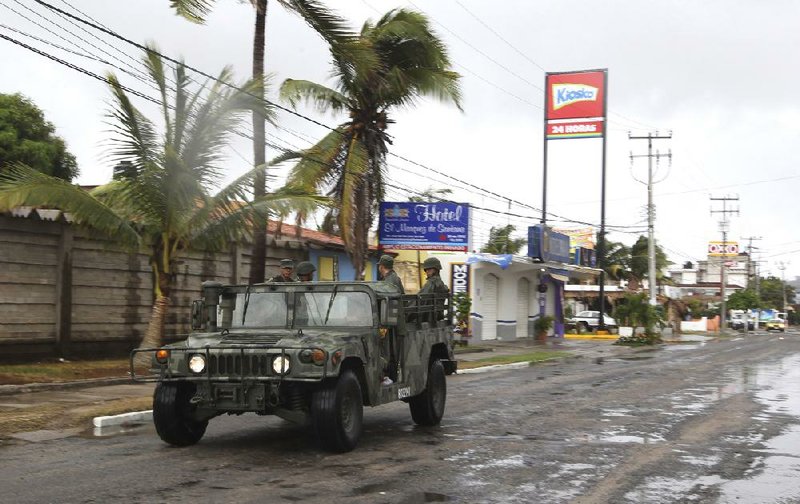PUERTO VALLARTA, Mexico — Bud weakened to a tropical storm Friday as heavy rain began to pelt a string of laid-back beach resorts and small mountain villages on Mexico’s Pacific coast south of Puerto Vallarta.
Meanwhile, two people, one of them from France, were reported missing in a separate storm in Cuba.
The National Hurricane Center in Miami said Bud’s maximum sustained winds, which were once blowing at 115 mph, had slowed to 60 mph by Friday night. The government of Mexico changed the hurricane warning for the coast of Mexico from Manzanillo to Cabo Corrientes to a tropical storm warning. Hurricane watches also were discontinued.
Forecasters said the storm would continue to weaken and the center would move over land late Friday or today.
Heavy rain started Friday night in Puerto Vallarta, and 6 to 10 inches was expected in many spots.
Mexican Authorities canceled school in 11 communities expected to be hit by heavy rains in Jalisco state, and emergency workers were preparing emergency shelters, many of which would be located in empty school classrooms.
Heavy rain and 6-foot high waves had already started pelting Melaque, a beach town on the Bahia de Navidad, about 60 miles east of the sparsely populated stretch of coast where the hurricane’s center is expected to make landfall.
Rafael Galvez, the manager of the Hotel Bahia in Melaque, said his staff was preparing to board up windows in preparation for Bud’s arrival.
“For me, really, this is my fourth hurricane. I went through Wilma in Cancun,” which hit as a Category 4, Galvez said. “This is a little less severe.”
Category 2 Hurricane Jova hit the area in October, killing six people and flooding parts of Melaque and neighboring Barra de Navidad.
“There was a lot of flooding in the whole area, and we lost electricity,” Galvez recalled. But this week, he said, only seven of his hotel’s 26 rooms were occupied, and none of the hotel’s guests were planning to leave.
Meanwhile, a separate storm was pounding much of Cuba and the Bahamas on Friday. Cuba’s civil-defense agency reported that a French citizen, Alain Manaud, and Silvestre Fortun Alvarez of Cuba were missing after trying to cross rain-swollen rivers, according to the government’s Prensa Latina news agency. It said a search for them was continuing.
An official at the French Embassy in Havana said Manaud was 66 and had lived in Cuba for several years. He spoke on condition of anonymity because he was not authorized to comment publicly.
The agency quoted government meteorologists as saying more than 20 inches of rain had fallen on parts of the central province of Sancti Spiritus.
The U.S. National Hurricane Center reported that the system had about a 70 percent chance of becoming a tropical or subtropical cyclone.
Bud had been a Category 3 storm with maximum sustained winds of 115 mph late Thursday, but it was down to Category 1 force with winds of 80 mph by midday Friday.
Rain, rather than wind, was expected to be the big threat of the storm, with the center warning of the “potential for life-threatening mudslides” in steep terrain inland.
The government of Jalisco state prepared hundreds of cots and dozens of heavy vehicles such as bulldozers that could be needed to move debris.
Officials in Puerto Vallarta said they were in close contact with managers of the hundreds of hotels in the city in case tourists need to move to eight emergency shelters, but on Friday night they said that appeared unlikely. It said the sea along the city’s famous beachfront was calm, but swimming had been temporarily banned as a precaution.
Jalisco state’s civil defense office said two shelters had been opened in Cihuatlan, a town just inland from Melaque that was hard hit by flooding from Jova.
The office also said authorities had decided to open a trench to help drain a coastal lagoon near Melaque that was already full and could overflow.
The region is experienced at handling hurricanes, Galvez noted. “The government planning has helped a lot,” he noted.
Information for this article was contributed by Mark Stevenson and Anne-Marie Garcia of The Associated Press.
Front Section, Pages 6 on 05/26/2012
